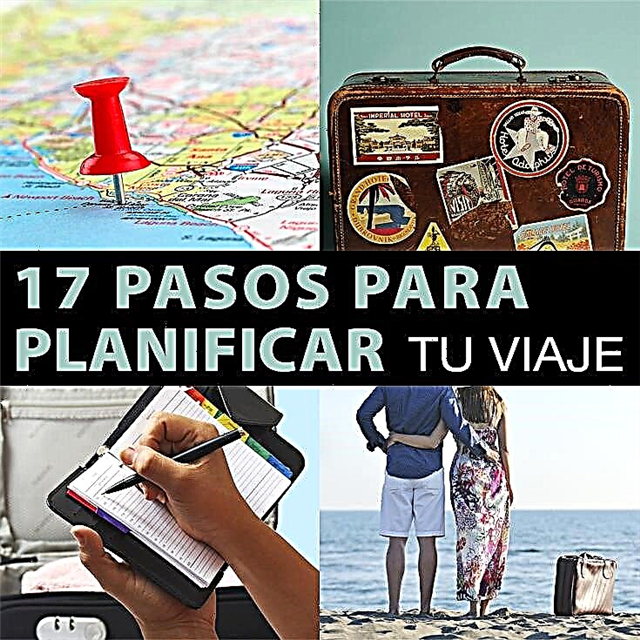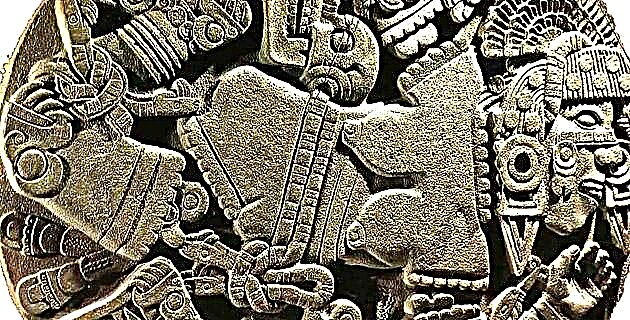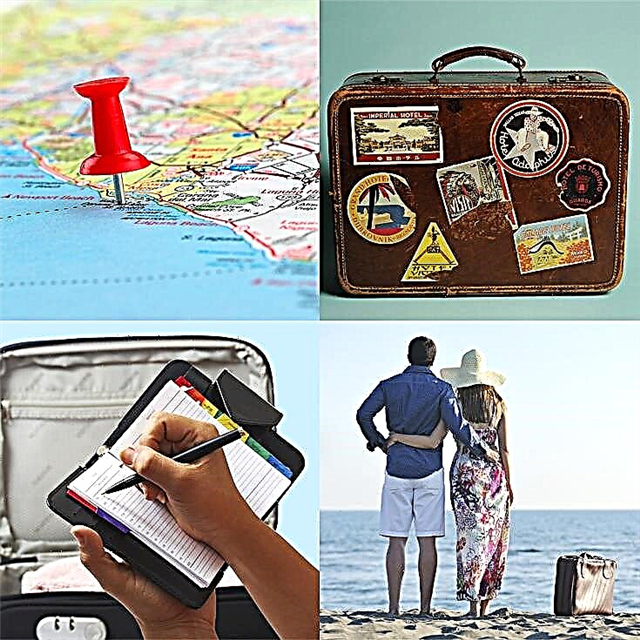There are people who talk about starting an exercise program and never start it because they leave it in the air, without deciding to define the place, frequency, time and clothes to use.
The same thing happens with trips abroad. We express our desire to go to Paris, Las Vegas or New York, but we do not land the desire with a series of concrete measures that lead us to achieve the objective.
These 17 steps are designed so that, at last, you can make your dream come true.
Step 1 - Decide where you want to go
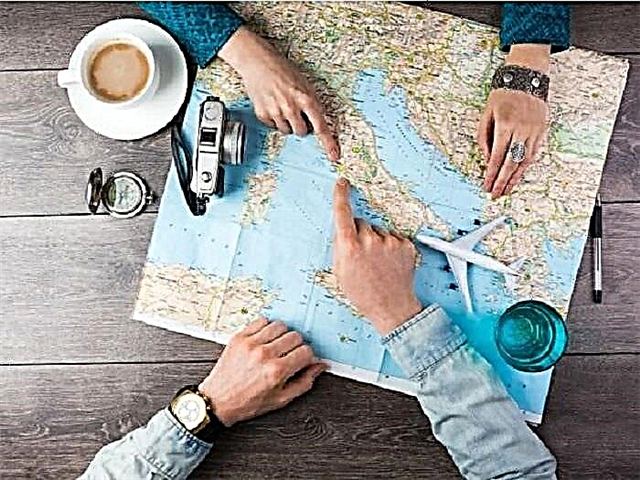
Many people who want to travel talk about their vacation project without making the first and most basic decision: where to go?
It seems like a truism, but once you have determined the place abroad you want to visit, the travel project begins to take shape in a series of decisions that bring the dream moment closer.
Of course, where you go depends on where you live and the cost. When you start to fine-tune your budget accounts, you may have to reconsider fate, but even then, you won't have wasted your time, since you've already fired the mental starting gun somewhere.
Do you want to know the fascinating Mexico, with its pre-Hispanic cultures, enchanting beaches in the Caribbean and the Pacific, volcanoes, mountains and deserts?
Do you want to explore the Argentine pampas, with its plains, meadows, gauchos and exquisite cuts of meat, and Buenos Aires with his handsome men, tangos and football?
Do you dare to go try your luck and leave some well-kept secrets in a spectacular hotel-casino in Las Vegas?
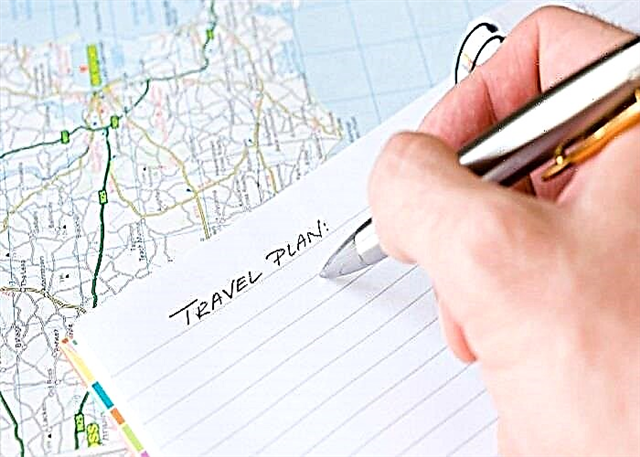
Would you rather cross the pond (assuming you are Latin American) and delve into the history, mysteries and beauties of Madrid, Seville, Barcelona, Paris, London, Rome, Florence, Venice, Berlin or Prague?
Are you leaning towards a more exotic destination, perhaps a paradise island in the Indian Ocean, bewitching India or ancient China?
Take a map of the world and just decide where you want to go! Try to be as specific as possible. For example, saying “I will go to Europe” is not the same as saying “I will go to France”; the second statement brings you closer to the goal.
There are several portals where you can obtain vital initial information to decide your travel destination.
- The 35 Most Beautiful Places In The World You Can't Stop Seeing
- The 20 Cheapest Destinations To Travel In 2017
- The 24 Rarest Beaches in the World
2 - Decide the duration of your trip
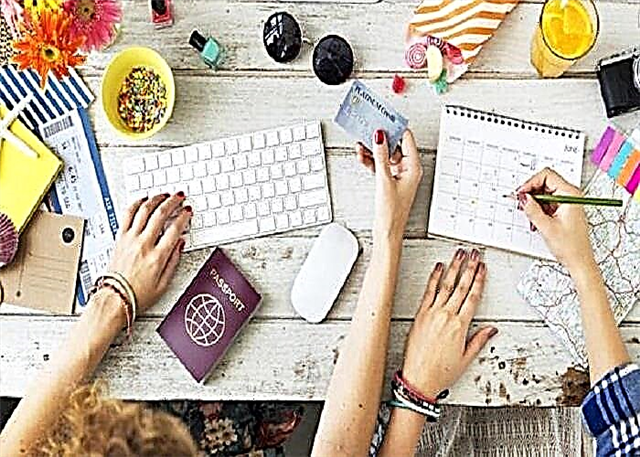
Once you have chosen the destination, the second decision you must make to start making detailed budget accounts is the duration of the trip.
A trip abroad is usually expensive in airfare, expenses that increase as the destination is further and further from the commercial routes.
Of course, being in the American continent, it may not be worth the expense of going for just a week to Europe and much less to Asia.
To the extent that the stay is longer, the fixed expenses of the trip, that is, those in which you will incur regardless of the duration (obtaining passport and visas, tickets, purchase of suitcase, clothes and other items, etc.) will be amortized with a longer season of enjoyment.
Once you have said "I'm going to Paris for two weeks" you are ready for the next step.
Step 3 - Research the costs
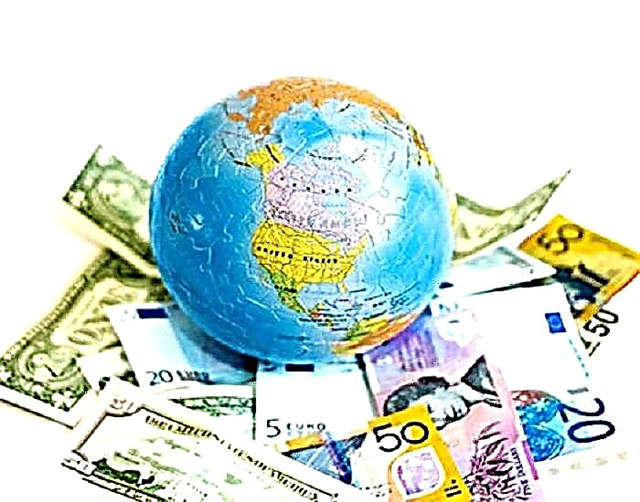
Let's suppose that you are a Mexican or a Mexican and that you will make a two-week trip to Paris and its surroundings, starting from scratch. Your approximate costs will be:
- Valid 3-year passport: 60 dollars (1,130 pesos)
- Big backpack: between $ 50 and $ 130, depending on whether you buy a piece in the lower price range or one of higher quality and longevity.
- Clothes and accessories: It is very difficult to estimate because it depends on your availability and needs. For example, if you need a new mobile phone or tablet, the cost increases significantly. We will assume $ 200 for budget purposes.
- Air ticket: At the beginning of the summer of 2017, air tickets for a trip Mexico City - Paris - Mexico City could be obtained at 1,214 dollars. Obviously, the ticket price varies with the season.
- Travel insurance: $ 30 (this cost is variable, depending on the coverage you want; We have assumed a reasonable minimum cost)
- Accommodation: $ 50 per day (it is the approximate cost of an acceptable hostel in Paris). The price range is very wide, depending on the category of accommodation. The couchsurfing or hospitality exchange option is usually the cheapest. The cost of 13 nights would be $ 650.
- Food and drink: between $ 20 and $ 40 a day (at the high end you will be eating in modest restaurants and at the low end you will need to prepare your own food. An intermediate option - about $ 30 / day - is to buy take out). The cost of two weeks would be between $ 280 and $ 560.
- Tourism and attractions: In Paris, most attractions charge an entrance fee, but they're not prohibitive, so around $ 20 a day should be enough for you. For example, the entrance to the Louvre costs 17 dollars and 18 to the Museum of the Center Pompidou. Of course, if you want to attend a show at the Red Mill or another cabaret, including a bottle of champagne, you must budget for it separately.
- Transport in the city: In Paris, a subway ticket for 10 one-way trips costs $ 16. Assuming 4 daily trips, $ 7 / day is enough.
- Transportation Airport - Hotel - Airport: $ 80 for two taxis.
- Alcohol: It depends on how much you drink. Alcohol can ruin any travel budget, especially if you're going on a binge. In Paris, a bottle of good ordinary wine costs between $ 7 and $ 12 at the grocery store.
- Miscellaneous: You have to reserve something for a souvenir, laundry expenses, extra transportation expenses and something unforeseen. Is 150 dollars good for you?
- Total: Considering the expense items listed, your two-week trip to Paris would cost between $ 3,150 and $ 3,500.Read also:
- The TOP 10 Best Carry-Ons: The Ultimate Guide to Saving
- The Best Backpacks For Travel
- How Much Does It Cost To Travel To Europe: Budget To Go Backpacking
- The 10 Best Budget Hotels in San Miguel De Allende
Step 4 - Start saving money
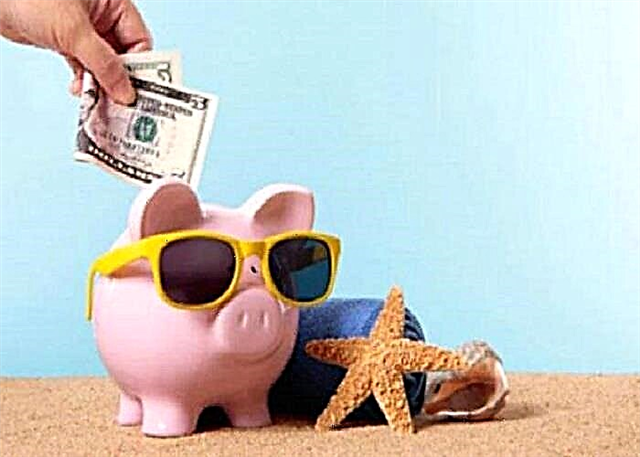
Let's think at first that you are a thrifty person and that of the 3,150 dollars that you would need at least to go to Paris for two weeks, you can withdraw 1,500 from your savings account.
Let's also suppose that you want to make the trip in 8 months. That means you'll need to save a total of $ 1,650 in the run up to departure.
It may seem like a significant amount, but if you split it up, you'll see that it's only $ 6.9 a day. Don't wonder if you can save $ 1,650 in 8 months or $ 206 per month; Better ask yourself if you can save $ 7 a day.
People are bleeding money daily from small purchases, most of them impulsive, such as snacks, water bottles and coffees.
If you do without a bottle of water and a coffee a day, you will already be approaching the goal of 7 dollars a day.
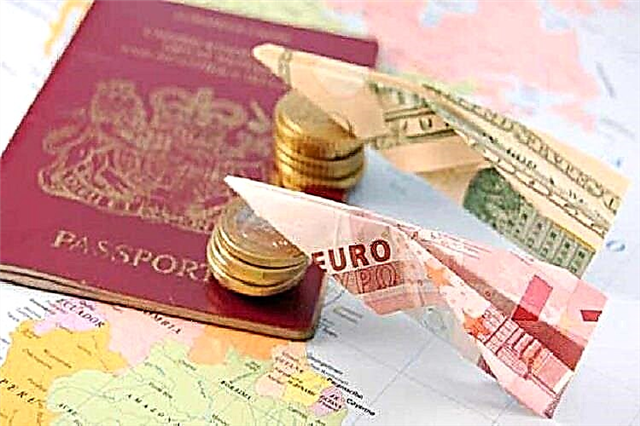
We are not asking you to get dehydrated. Personally, I spend very little on bottled water. I have gotten used to filling and refrigerating some bottles at home and I grab one every time I go out in the car, can you try it? The planet will also thank you because you will dispose of less plastic garbage.
How many times a day or a week do you eat in the street or buy ready-made food? If you learn to cook a few simple dishes, you will save much more than 7 dollars a day and the learning will save you for a lifetime, including during your trip to Paris.
If you do not initially have the 1,500 dollars in your bank account, you will have to save between 13 and 14 dollars a day to finance the trip.
It may not be a thing of the other world or you may have to enter an 8 month period of "war economy" to fulfill your dream of going to Paris. The City of Light is well worth a few months of small sacrifices.
Step 5 - Take Advantage of Bank Card Rewards
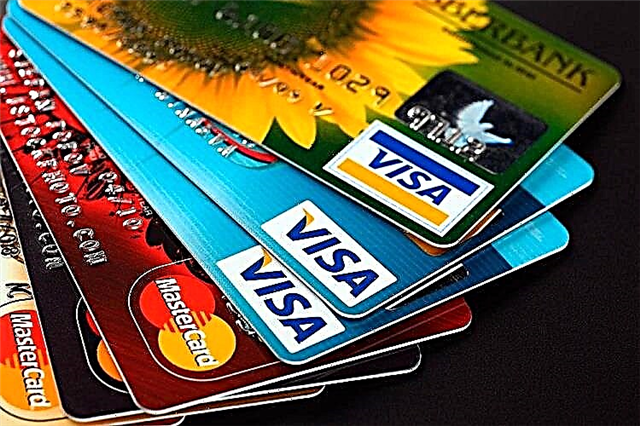
As you start saving money on your daily expenses, get one or two credit cards that offer the best travel bonuses.
Most cards have bonuses of up to 50,000 points, depending on a minimum spend, often $ 1,000 within three months.
Maximize your current expenses with credit cards, in order to earn bonuses that lower airfare, accommodation, car rental and other expenses.
Another option is to join a bank that does not charge ATM fees and other fees. To get these benefits, you can join a bank belonging to the Global ATM Alliance.
Step 6: stay inspired by your trip

Maintaining inspiration during the period prior to the departure date will contribute with the necessary impetus to solve the problems and inconveniences that may arise and to execute the savings plan, in which you must be totally focused.
Reading topics that encourage a proactive mindset will be very supportive. Look online for stories that keep you focused on your travel purpose, such as those that provide ideas for saving money and optimizing the use of time.
Obviously, readings and videos about travel and the main attractions of the destination will be decisive to maintain the traveling spirit, looking forward to the arrival of the moment to leave.
Step 7 - Check for last minute offers
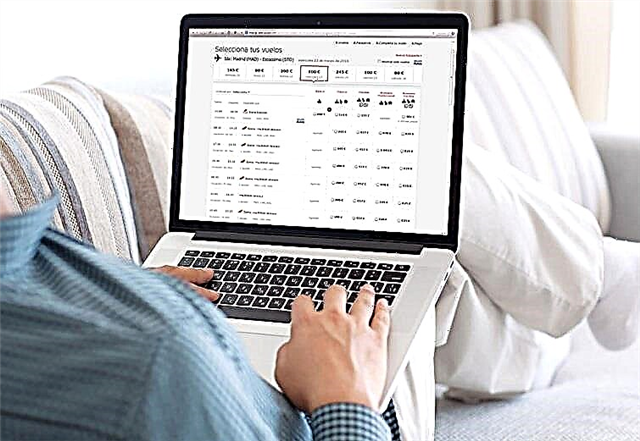
It's great that you stay focused on saving money and inspired for your trip. But before you go shopping for airline tickets or hand over an advance on hotel reservations and other expenses, check to see if there are any extraordinarily attractive offers that make it worth re-planning.
For example, an irreplaceable package for London, Madrid, Greece, or a Mediterranean cruise. The dream of Paris will live on, but perhaps you will have to wait for a next opportunity.
The world is too big and there are a lot of interesting and beautiful places struggling to capture the preference of travelers. Great deals are a common way to go.
Step 8 - Book your flight

Keep track of airfare prices and approximately two months before your travel date, secure your airline tickets.
If you do it before, you could miss an offer that appears after your purchase and if you do it later, variables such as possible lack of available seats come into play. Do not forget to take advantage of all the bonuses earned with the use of your credit cards.
There are several portals to search for cheap air tickets, such as:
- Take off
- Google Flights
- Momondo
- Matrix Software ITA
Step 9 - Reserve your accommodation
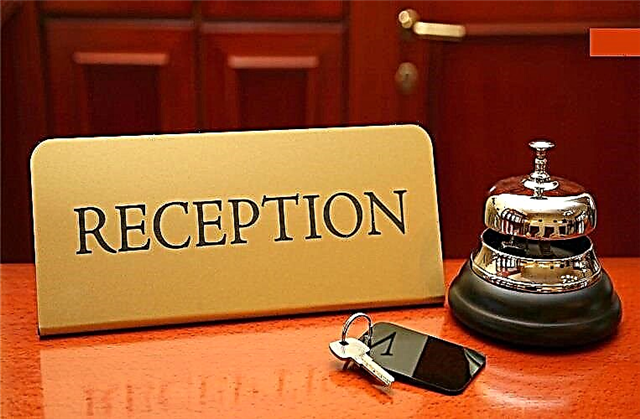
Once you know your period of stay at the destination, there is no reason why you should not find the most suitable accommodation for your tastes and budget.
Generally, accommodation options for economy class travelers are hostels or hostels, modest hotels (two to three stars) and apartments for rent.
In Paris you can get guest houses from around $ 30 and other Western European cities are even cheaper, such as Berlin ($ 13), Barcelona and Dublin (15), and Amsterdam and Munich (20).
In the cities of Eastern Europe and the Balkan Peninsula the hostels are even cheaper, such as Krakow (7 dollars) and Budapest (8).
Another advantage of Eastern Europe and the Balkans is the lower cost of food, in surprisingly charming cities like Warsaw, Bucharest, Belgrade, St. Petersburg, Sofia, Sarajevo, Riga, Ljubljana, Tallinn and Tbilisi.

Cheap hotels booked online have the problem that frequently the comfort and beauty that they advertise are not always what the customer finds upon arrival, since the independent rating means for these types of establishments are relatively poor.
Whenever you are going to stay in a modest and low-priced place, it is convenient that you consult the opinions of previous users through an independent page. The best thing will always be to have the reference of someone you know.
In most European cities you can get an equipped and conveniently located apartment for the same price as an average hotel room.
The apartment is openly more convenient for families and groups of friends, as it also allows significant savings on food and laundry.
Some popular portals for searching accommodation are:
- Trivago
- Hotwire
- Agoda
Step 10 - Prepare your activity plan

Your dream adventure in Paris or in any foreign destination deserves the best plan. Outline the main attractions you want to visit and the activities you want to enjoy, assigning an approximate cost.
Make last minute budget adjustments to make sure you don't miss out on anything you think is essential, and step up your savings plan if necessary.
At this point in the movie you may come to the conclusion that just saving may not be enough. But this is not the time to be discouraged, but to consider some other option to get money.
The most at hand alternatives to get emergency money without compromising the future with usurious loans, are usually the sale of some objects or the realization of some temporary work that allows to round the necessary dollars.
Paris is well worth a garage sale!
- The 15 Best Things to Do and See in the Galapagos Islands
- The 20 Best Things to Do and See in Playa del Carmen
- 35 Things To Do And See In Seville
- 25 Things To Do And See In Rio De Janeiro
- 25 Things To Do And See In Amsterdam
- The 84 Best Things to Do and See in Los Angeles
- 15 Best Things To Do And See In Medellín
Step 11 -bordering on the sale of personal items

The online or garage sale should be done between 75 and 60 days before the date of travel.
The same applies to long trips (over 6 months), when it is even more convenient to get rid of personal items and household items to make as much box as possible.
Step 12 - Automate your accounts
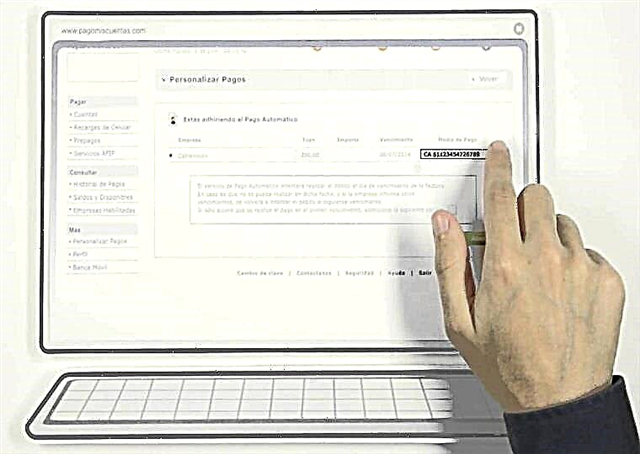
Leave an absence answering machine in your email and automate the payments of regular bills that you are doing in person, such as electricity, gas and other services. The last thing you want in Paris is to be aware of the payment of a domestic account.
If you still have a close relationship with paper mail and are going on a long trip, check if there is a company in your country that is responsible for collecting and scanning correspondence. In the United States, this service is provided Earth Class Mail.
Step 13 - Inform your card companies about your trip

Regardless of the duration of the trip, it is always a good idea to inform your banks or credit card companies about your stay abroad.
This way you make sure that the transactions you make outside your country are not marked as fraudulent and that the use of the cards is blocked.
There is nothing worse than having to sit on the phone to communicate with your bank to unblock the cards, while the sights of Paris are packed with people who were foresight and did not suffer that setback.
Step 14 - Prepare the travel documentation
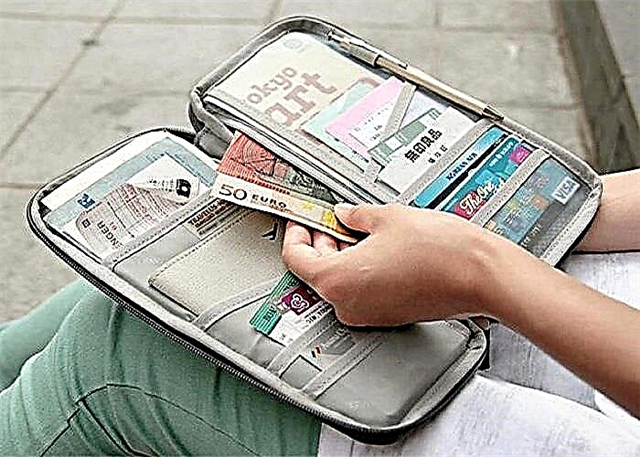
Classify and organize your travel documents, which you must carry by hand. These include passport and visas, national identity certificate, driver's license, travel insurance, credit and debit cards, money in banknotes and coins, frequent flyer cards, hotel loyalty cards, car rental companies and other
Other documents that you cannot forget are reservations for hotels, cars, tours and shows, tickets for means of transport (plane, train, bus, car and others), subway maps and related aids, the medical report of any condition of health and emergency information card.
If you have a student card, carry it in your wallet so that you can take advantage of the preferential rates for students at museums and other attractions.
Step 15 - Prepare the luggage
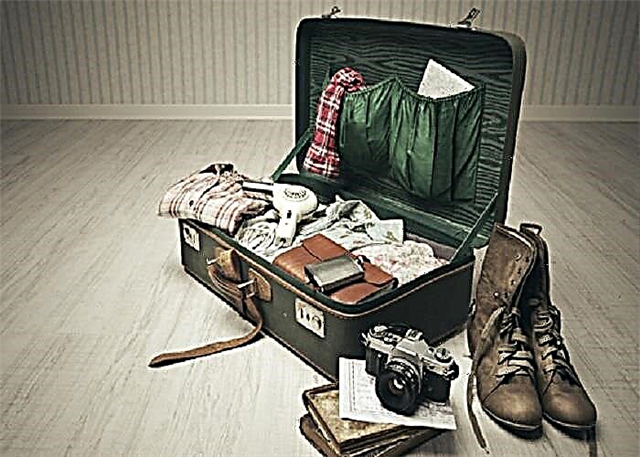
Verify on the airline portal that your carry-on luggage meets the established size specifications.
In your handbag or backpack you should carry a mobile phone, tablet, personal computer and chargers, travel documents and money, headphones, camera, electrical converters and adapters, medicines and cosmetics (verifying that they do not exceed the amounts to carry by hand) and jewelry.
Other carry-on items include a money belt or fanny pack, sunglasses, a book, magazine or game, a blanket, travel and language guides, hand sanitizer and wipes, house keys, and some energy bars to cover a hunger emergency.
The checklist for the main bag should include shirts, blouses and dresses; long pants, shorts and bermudas; socks, underwear, sweaters, jacket, T-shirts, belt, pajamas, bath shoes and sandals.
Also, accessories for clothing, swimsuit, sarong, scarves and capes, folding bag, ziploc bags, some ordinary envelopes (they are practical to discreetly deliver a tip), battery light bulb, mini elastic cords and hypoallergenic pillowcase.
- What To Take On A Trip: The Ultimate Checklist For Your Suitcase
- TOP 60 Tips To Pack Your Travel Suitcase
- What Can You Take In Hand Luggage?
- 23 Things To Take When Traveling Alone
Step 16 - Buy travel insurance
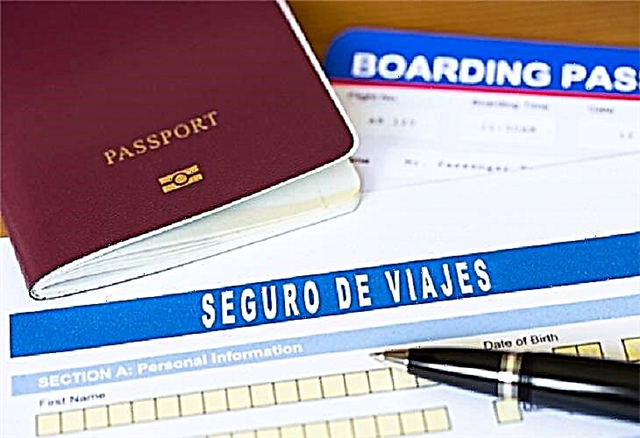
It is a very natural tendency for most perfectly healthy people to think that they do not need insurance to travel, but these policies can cover eventualities far beyond health, such as lost luggage, cancellation of flights, theft of items. personal or an unexpected return home.
Travel insurance is cheap precisely because it only covers risks for an extremely short fraction of time, compared to the life expectancy of the traveler.
During a trip the risks increase and a foreign country is not a place where you will feel like a fish in water in the event of an unpleasant eventuality. So the best thing is that you buy your travel insurance; it only costs a few dollars a day.
Step 17 - Enjoy the ride!

At last the big day arrived to leave for the airport to board the plane to Paris! In the last minute rush, don't forget your passport and leave the stove on. Prepare a checklist in which you verify that everything has been in order at home.
The rest is the Eiffel Tower, the Avenue des Champs-Elysées, the Louvre, Versailles and the unrivaled monuments, museums, parks, restaurants and shops of Paris!